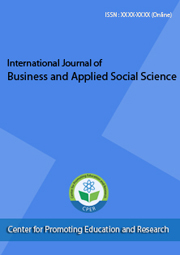current
Table of Contents
Articles
Abstract:
Administrative corruption is largely influenced by economic, political, social, cultural, and judicial systems and also, it has negative impacts on the legitimacy of political systems and the performance of administrative systems. Therefore, the aim of the current study is to identify the causes of the emergence and the prevalence of administrative corruption and to provide appropriate strategies for controlling and restricting the scope of administrative corruption. Hence, this research is of descriptive-analytical type and it is based on data collected by field methods. It should be noted that consistency and validity of the questionnaire have been examined with Cronbach's alpha and factor analysis, respectively. Then, non-parametric tests including binomial test and Friedman test have been used for testing the hypothesis. Ultimately, the results of this study showed that there are several factors such as lack of professional conscience, lack of adherence to ethics in the society, the sense of economic inequality in government employees in comparison with those in the other sectors, complexity of laws, etc., have significant influence on the emergence of administrative corruption. Also, some other factors such as the existence of an efficient financial control system, effective administrative control, establishing some independent agencies for resolving the administrative corruption, intensification of the penalties, depoliticizing the administrative system, and applying efficient regulations can be effective in controlling and preventing the administrative corruption.






